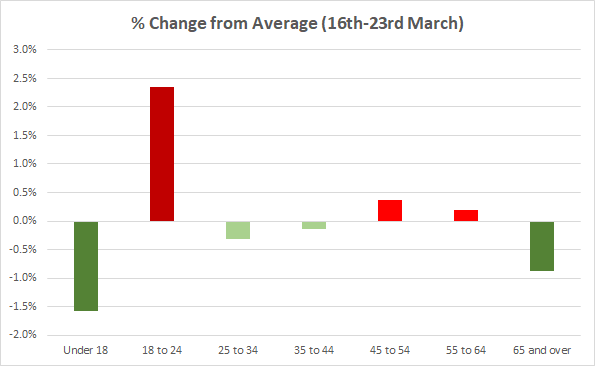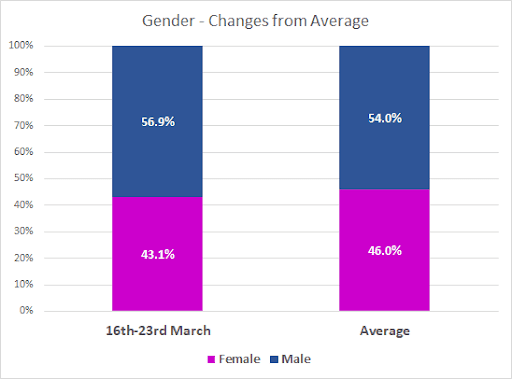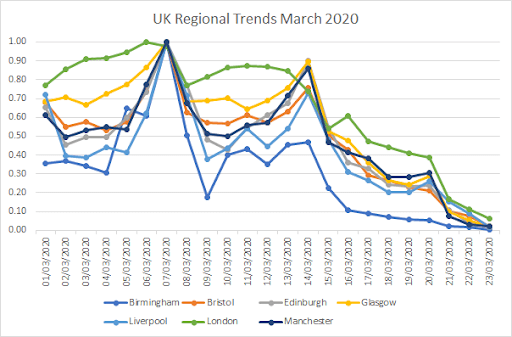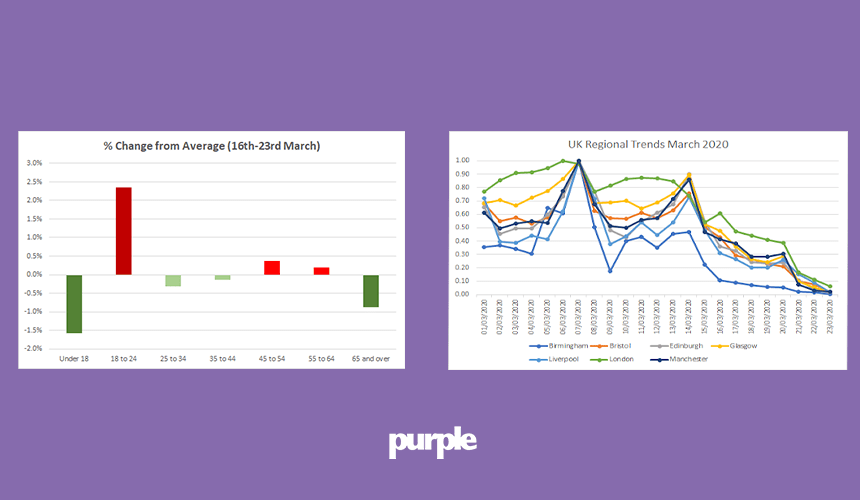Purple has a dataset uniquely placed to measure the impact of self-isolation and social distancing across a range of demographics.
Using WiFi Analytics, it is possible to capture the age and gender of visitors and measure how the behavior of these demographics differs from the average amidst the social restrictions and government advice during the Coronavirus outbreak.
Regionally within the UK, we have measured the impact on major cities such as London, Manchester, Glasgow, Edinburgh, Birmingham, Liverpool, and Bristol.
Demographic Analysis

The table above highlights the difference from the average across age ranges, for venues across the UK.
The data shows that under 18’s have been less likely to be in public over the past 8 days before stricter self-isolation measures were introduced by the UK government.
In that time, a smaller proportion than the usual of Over 65’s were captured, down by around 1%.
However, in the 18-24 age-group, you can see an increase of almost 2.5%, implying that they may be taking the government’s advice less seriously than other age groups.
In terms of gender, there was also a notable difference across UK visitors, with Male visits around 3% higher than would be expected during a usual week.

Regional Analysis

In the above table, data from some of the major UK cities are included, highlighting differences in the way regions reacted to the increasing urge to self-isolate.
Birmingham shows a sharper decline earlier in March than across other regions, while both London and Manchester seem slightly slower to react to the advice of self-isolation and social distancing.
Purple will continue to provide a unique insight into the effect these restrictions have on by region, demographic, and geography.
